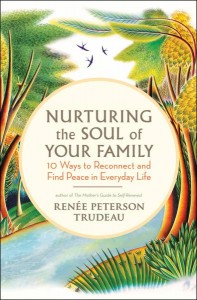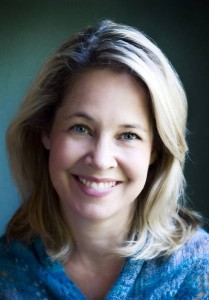
I love this plaque that hangs in the office of my pediatrician:
“I’d be the perfect parent
if it weren’t for my children”
When my kids were babies, I thought I knew what it meant. Toddler-hood made it hit home even more. In elementary school, it continued to resonate. Last month, my youngest child just hit double digits (the big 1-0!), and this pithy statement just keeps getting truer and truer.
I always knew I wanted children. I couldn’t tell you why, I just knew. I had no idea how much my children would teach me–about relationships, communication, unconditional love–and about myself! Without fail, every big argument or difficult patch I have had with my children (or with my husband, for that matter) has revealed my blind spots, assumptions and self-limiting beliefs and how they affect those around me.
When things get rocky, I may fleetingly wish to be the perfect parent (or have the perfect children!) but as a seeker of truth, and a lover of learning, I know deep down that I have no greater teachers than the little tribe that I call my family. Family is a sacred thing– and it’s something worth nurturing.
My colleague Renee Trudeau speaks to just this in her new book: Nurturing the Soul of Your Family: 10 Ways to Reconnect and Find Peace in Everyday Life. This excerpt –about checking our own emotional baggage–really resonated with me, and I share it with you in the hopes that it will resonate with you too–whether you have children, or not. After all, we are all children of someone and part of the human family!
Upon Arrival, Proceed to Baggage Claim
(An Excerpt from Nurturing the Soul of Your Family by Renee Trudeau)

Renee Trudeau, author of Nurturing the Soul of Your Family
Relationships of all types can be challenging. In particular, family members, partners, and children often develop a sixth sense for how to push our buttons. For myself, to become less reactive, I’ve had to slowly become more self-aware, compassionate, loving toward myself, and attuned to my needs — which has made me a much more emotionally present parent and partner.
Some of the keys are to show up in our relationships with a soft and open heart, a healthy perspective, and a full cup rather than a half-empty one. Before we can do that, however, we have to examine ourselves: we have to release and heal old self-limiting beliefs by understanding what we’re holding on to and why.
We all have emotional baggage. Ever heard the phrase “the issues are in the tissues”? Our beliefs, scars, and old patterns from our family lineage, childhood, culture, education, and birth order all significantly affect our worldview and habitual ways of being. These, in turn, guide how we show up and relate to our family members.
Some days we get easily triggered. Maybe our child not putting their dirty clothes in the laundry room sends us over the edge, while other days they could break the front door and we’d just roll with it. Our state of being has the most impact on how we respond to external circumstances. Some days we receive the gift of observing when we’re stuck in an old pattern or way of seeing things, and other times we just feel stuck, or else constantly critical or judgmental, thinking of our partner or children: “If they’d just listen to me, we’d all be happier!”
When this happens, look inward to see if you have any unclaimed baggage. For instance, when my son, Jonah, was about to turn ten, he and I went through a really difficult patch. He’s a beautiful, passionate, mature, intense kid, and as he reached adolescence, his level of defiance at times overwhelmed me. A simple request to finish homework or put his dirty dishes in the sink could invoke an emotional tsunami. Since I have a tendency to be controlling, our interactions were a Molotov cocktail.
After a particularly hard stretch involving lots of crying jags (mostly mine), I called Terri, a parent educator, and asked if my husband and I could see her for a session. I was exhausted from the stressful interchanges and needed help. After I explained our situation, Terri turned to me and gently shared, “You are going through mourning — Jonah is no longer a child. He’s an adolescent.” Terri went on to highlight some of the science around early-adolescent behavior and how best to support my son; in short, offer love and acceptance, not solutions and tips for improvement. After that illuminating session, things got much easier in our home — not yellow-brick-road happy, but the crying and yelling diminished greatly.
In part, the improvement occurred because my husband and I tweaked our language and gave Jonah more freedom, but mostly things changed because my husband and I shifted ourselves internally. We realized we were holding unrealistic, supersized fears that were causing us to be overly critical; our heads had become filled with visions of our out-of-control nine-year-old turning into a sixteen-year-old heroin addict. We were “parenting from the future” and from our own fears and wounds, rather than from the present moment, which was what our son most needed. This aha moment and shift in our awareness are what created the big shift in our family dynamic that we needed. Often we have to break down in order to break through.
# # #
Life balance coach/speaker Renée Peterson Trudeau is the author of the new book Nurturing the Soul of Your Family. Thousands of women in ten countries are participating in Personal Renewal Groups based on her first book, the award-winning The Mother’s Guide to Self-Renewal. Visit her online at www.ReneeTrudeau.com
Excerpted from the new book Nurturing the Soul of Your Family ©2013 Renée Peterson Trudeau. Published with permission of New World Library http://www.newworldlibrary.com


